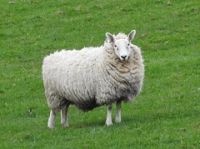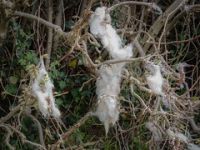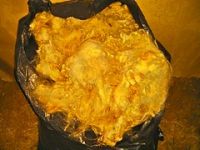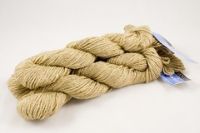Uses for Sheep's Wool in the Garden

 Using Sheep's Wool For Pest Control
Using Sheep's Wool For Pest Control
Natural, unwashed sheep's wool (sometimes called greasy wool) is rich in lanolin, a natural oil that is said to repel certain pests, slugs included. Some say that the rough texture of the wool means that when placed around the base of vulnerable plants, it can serve as a barrier against slugs.
Sheep's Wool Compost
Due to the shockingly low prices farmers can get today for wool for the textiles industry, many sheep farmers are looking for alternative ways to make money from wool. One idea that is relevant to gardeners is using sheep's wool along with bracken or other biomass to make garden compost – an eco-friendly peat-free alternative. Small quantities of foraged sheep's wool can also be used in a regular compost heap, and will decompose to add fertility to the soil.
 Using Sheep's Wool as Insulation or Mulch
Using Sheep's Wool as Insulation or Mulch
Sheep's wool has excellent insulative properties. Another way in which some farmers are able to make some money from their fleeces is by selling them for use in the construction industry, as insulation for houses. Sheep's wool insulation could also be used as an eco-friendly choice for insulating sheds, summerhouses or other garden buildings, or to insulate the chicken coop or other animal housing. Small quantities of greasy wool could be stuffed into spaces in a shed or coop to keep out the cold.
Sheep's wool could also be used as a heavy mulch which can help keep plant roots safe from the frosts of winter. There are other benefits to using sheep's wool as a mulch too. Naturally biodegradable, it will break down and add fertility to the soil over time. It also helps to conserve and retain water, and can be effective for weed control.
 Using Sheep's Wool to Make Garden Twine
Using Sheep's Wool to Make Garden Twine
Of course, traditionally, sheep's wool is washed, carded and then spun to create a yarn. Sheep's wool yarn is used to make a range of knitted garments, but can also be used to make an eco-friendly alternative to imported jute or plastic garden twine.
This useful material can find a range of applications in your garden. So if it is abundant in the environment where you live, it could be worthwhile thinking about how you can use it in your growing efforts.